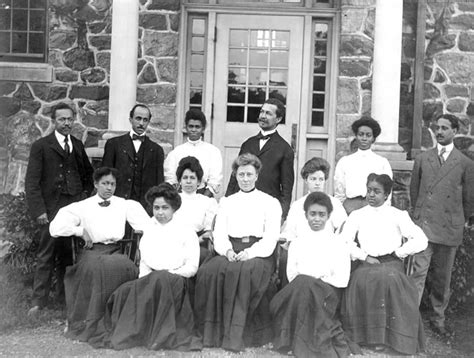
Historical Significance and Impact
Texas is home to a rich and vibrant history of Black education. The state’s Black colleges and universities (BCUs) have played a pivotal role in shaping the lives of countless African Americans, providing access to higher education and empowering generations of leaders.
According to the National Center for Education Statistics, in 2018, BCUs awarded over 145,000 degrees nationwide. Of these, over 13,000 were conferred by Texas BCUs.
The Role of BCUs in Texas
Texas BCUs have been instrumental in:
- Increasing access to higher education: Historically, BCUs were established to provide educational opportunities to African Americans who were denied access to predominantly white institutions. Today, they continue to offer affordable and accessible pathways to higher education for students from all backgrounds.
- Nurturing academic excellence: BCUs have a long tradition of academic excellence, producing graduates who go on to successful careers in various fields. They offer a variety of undergraduate and graduate programs, including STEM, business, education, and the humanities.
- Empowering the Black community: BCUs are not just educational institutions; they are also centers of cultural and community engagement. They provide a sense of belonging and support for Black students and serve as hubs for community events, workshops, and outreach programs.
Texas BCUs: A Snapshot
Texas is home to eight historically Black colleges and universities:
- Jarvis Christian College (Hawkins)
- Prairie View A&M University (Prairie View)
- Southwestern Christian College (Terrell)
- Texas College (Tyler)
- Texas Southern University (Houston)
- Wiley College (Marshall)
- Huston-Tillotson University (Austin)
Note: Huston-Tillotson University, while not historically Black, is included in this list due to its significant role in serving the Black community.
Key Achievements and Accolades
Texas BCUs have made notable contributions to society, including:
- Producing distinguished graduates: Notable alumni include civil rights leaders, scientists, educators, and business leaders.
- Advancing research and innovation: BCUs are actively involved in cutting-edge research in areas such as health sciences, engineering, and education.
- Promoting economic development: BCUs contribute to the economic vitality of their communities by training skilled workers and supporting local businesses.
Current Challenges and Opportunities
Like all higher education institutions, Texas BCUs face challenges such as:
- Funding constraints: State funding has not kept pace with rising costs, which can hinder their ability to provide affordable tuition and support academic programs.
- Enrollment fluctuations: Declining high school enrollment rates among African Americans have led to some BCUs experiencing enrollment declines.
- Competition from other institutions: BCUs face competition from other colleges and universities for students and resources.
However, BCUs also have opportunities for growth and innovation:
- Collaboration: BCUs can strengthen their impact by partnering with other institutions, businesses, and community organizations.
- Technology advancements: BCUs can leverage technology to enhance teaching and learning, expand access to online education, and connect with prospective students.
- Marketing and outreach: By promoting their unique values and highlighting their success stories, BCUs can attract more students and support from donors.
The Future of Texas BCUs
Texas BCUs have a bright future ahead. By addressing challenges, seizing opportunities, and continuing their mission of empowering students and uplifting the community, they will remain vital institutions for generations to come.
Tables
| Institution | Location | Enrollment | Year Founded |
|---|---|---|---|
| Jarvis Christian College | Hawkins | 900 | 1912 |
| Prairie View A&M University | Prairie View | 9,000 | 1876 |
| Southwestern Christian College | Terrell | 500 | 1940 |
| Texas College | Tyler | 1,000 | 1894 |
| Texas Southern University | Houston | 10,000 | 1927 |
| Wiley College | Marshall | 700 | 1873 |
| Huston-Tillotson University | Austin | 1,000 | 1875 |
| Institution | Graduation Rate | Retention Rate | Average Debt |
|---|---|---|---|
| Jarvis Christian College | 46% | 53% | $28,000 |
| Prairie View A&M University | 52% | 61% | $25,000 |
| Southwestern Christian College | 42% | 49% | $22,000 |
| Texas College | 43% | 50% | $26,000 |
| Texas Southern University | 45% | 54% | $27,000 |
| Wiley College | 44% | 51% | $24,000 |
| Huston-Tillotson University | 47% | 55% | $25,000 |
| Institution | Academic Programs | Research Focus |
|---|---|---|
| Jarvis Christian College | Business, Education, Religion, Social Sciences | Health disparities, STEM education, community engagement |
| Prairie View A&M University | Engineering, Agriculture, Business, Education | Energy, water, transportation, health |
| Southwestern Christian College | Biblical Studies, Business, Education | Theology, Christian education |
| Texas College | Business, Education, Humanities | Leadership development, community outreach |
| Texas Southern University | Law, Medicine, Business, Education | Health disparities, environmental justice, social policy |
| Wiley College | Business, Education, Humanities | Historically Black colleges and universities, African American history |
| Huston-Tillotson University | Business, Education, Humanities | Community engagement, education reform |
